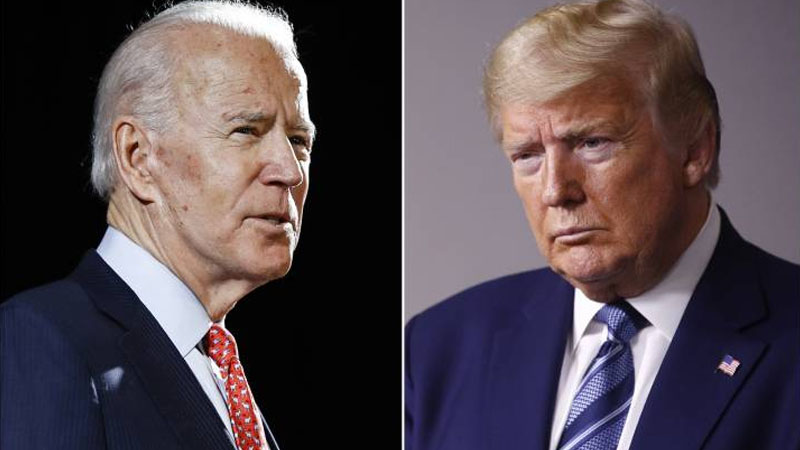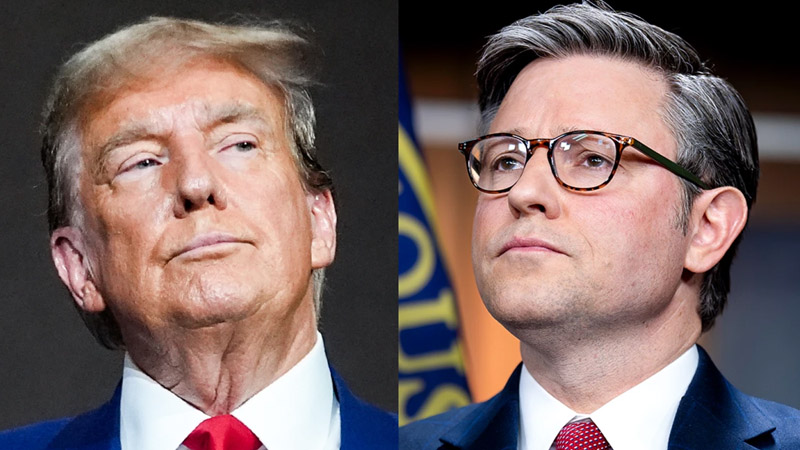Donald Trump Slams Biden’s Administration, Linking ‘Misery, Destruction, and Death’ to His Governance Amidst Global Strife and Navalny Tragedy

Source: CNN
Donald Trump recently took to social media to express his dire view of the current global situation under President Joe Biden’s administration, likening it to a dystopian nightmare. In his post, Trump lamented what he perceives as a sharp decline in global stability and America’s international standing since Biden assumed office in 2020.
Trump’s critique, as reported by Mediaite, was scathing and unequivocal. He accused Biden of leading the world into an era marked by “Misery, Destruction, and Death,” asserting that America’s loss of respect on the world stage stems directly from having an “incompetent president who is weak and doesn’t understand what the World is thinking.”
Trump went further, positioning himself as the sole architect of peace, prosperity, and stability, reminiscent of his first term in office. He confidently proclaimed his unique ability to restore America to a position of respect and, if necessary, fear on the global stage.
This stark declaration from Trump emerged amidst the tragic news of Russian opposition leader Alexei Navalny’s passing. The Russian Federal Penitentiary Service in the eastern Yamal region reported that Navalny succumbed on Friday morning after collapsing unexpectedly during a walk. Navalny, a vocal critic of Vladimir Putin and the Russian government, had been serving a 19-year prison sentence at the time of his death.
While Trump chose not to comment directly on Navalny’s death through social media, he utilized the platform to launch a broadside against Biden’s leadership, blaming it for widespread global turmoil. It’s noteworthy that during Trump’s tenure as president, Navalny suffered a poisoning incident in August 2020, an event that significantly strained Russia-West relations.
In contrast to Trump’s silence on Navalny, President Biden addressed the opposition leader’s death in a press conference, condemning Putin’s regime for its “brutality” and implying that Navalny’s death was a direct result of such governance.
Amidst these developments, Trump and his supporters have criticized Biden for his stance on Ukraine, labeling him a “warmonger” for backing Ukraine amidst its conflict with Russia. Reports from Raw Story indicate that Trump’s advisers have been considering a negotiated end to the Ukraine conflict, potentially resulting in Ukraine ceding territory to Russia.
Trump has also hinted at a radical overhaul of U.S. foreign policy, particularly concerning NATO. He has suggested that collective defense assurances should be contingent upon member states meeting specific defense spending benchmarks, echoing his past criticisms of NATO allies for not matching the U.S.’s financial contributions to the alliance.
This stance starkly contrasts with Biden’s criticism of Trump’s apparent willingness to abandon U.S. allies if they fail to meet their defense spending obligations, encapsulating the divergent foreign policy philosophies of the two leaders.
The international community has largely condemned Navalny’s death, attributing it to Putin’s repressive regime. Ukraine’s President Volodymyr Zelenskyy and Vice President Kamala Harris, among others, have voiced their outrage, with Zelenskyy unequivocally stating Navalny was murdered due to Putin’s actions, and Harris commenting on the situation’s brutality at the Munich Security Conference.
These unfolding events highlight the complex interplay of domestic politics, international relations, and individual leadership styles in shaping global affairs and underscore the profound implications of leadership decisions on the world stage.


